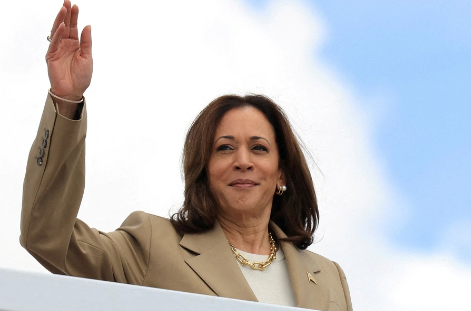
Canvassing for a political campaign is never just a job; it’s an experience. For those who walked the streets of Pennsylvania during Kamala Harris’s campaign, knocking on doors felt like a blend of optimism, nervous energy, and the weight of potential change. The state’s battleground status heightened the intensity. As every encounter unfolded, volunteers carried not just campaign literature but also a message of hope and change. But with Trump ultimately winning Pennsylvania, many canvassers found themselves reflecting on their experiences and wondering what went wrong—or right—during those moments on the ground.
A Day on the Trail: Conversations, Convictions, and Concessions
Each canvassing day began early and often in neighborhoods where political allegiances were mixed. Volunteers who canvassed for Kamala often heard from residents with strong opinions, who weren’t shy about expressing both their support and their frustrations. Knocking on doors meant more than just delivering talking points—it was about listening, about connecting. Many residents voiced concerns over issues like the economy, healthcare, and education. The canvassers found themselves listening more than they spoke, gathering the stories and struggles of Pennsylvanians who were still reeling from the pandemic’s impact.
Encounters often varied, with supporters sharing encouragement and asking for details on how Kamala’s policies might improve their communities. At other doors, canvassers faced skepticism, ranging from concerns over policy promises to outright distrust of political figures. For those supporting Kamala, these exchanges reminded them of the diversity of thought and experience that defined Pennsylvania’s voter base.
Why Does Pennsylvania Matter?
Pennsylvania’s role as a battleground state in presidential elections can’t be overstated. The blend of urban, suburban, and rural populations creates a microcosm of the larger American political landscape. The state has shifted politically over the years, swinging from Democratic to Republican in key elections. For Kamala’s team, focusing on Pennsylvania was essential. They knew winning here would send a strong message about the campaign’s ability to connect with voters who could make or break a national election.
Canvassing in Pennsylvania also meant understanding the state’s unique political dynamics. Philadelphia, for instance, leans heavily Democratic, while rural counties often favor Republicans. Suburban areas, particularly around Pittsburgh and Philadelphia, held many undecided voters, and campaign efforts heavily targeted these areas. Volunteers saw firsthand how neighborhoods shaped by manufacturing, agriculture, and emerging industries responded differently to campaign messages, adding a layer of complexity to every door-knocking round.
Hopes vs. Reality: Confronting Political Divides
With each conversation, canvassers became more acutely aware of the political divides present within Pennsylvania. Trump’s victory in the state suggested that Kamala’s message might not have resonated as deeply as hoped. For many canvassers, this realization was bittersweet; they had invested long hours and emotional energy into believing their efforts would make a difference.
But the experience of talking to everyday Pennsylvanians revealed a deeper truth about the power of political convictions. People’s views were often rooted in personal experiences, community histories, and cultural identities that went beyond party affiliation. Volunteers noticed a distinct pattern: for some voters, loyalty to Trump was about a promise to restore a vision of America that they felt had been lost, while others saw Kamala as a symbol of progress and inclusivity.
After Trump’s Win: Lingering Questions and Reflections
Trump’s win in Pennsylvania left many canvassers grappling with what-ifs. Some wondered if there were ways the campaign could have better addressed local issues or responded to voters’ concerns. Others questioned whether the messaging resonated as intended or whether it felt too disconnected from the realities of voters’ lives.
Volunteers looked back on certain encounters that stayed with them, conversations that offered insight into why voters made the choices they did. Some Pennsylvania residents shared concerns that Kamala’s policies would lead to more government intervention, which they feared would threaten their autonomy. Others expressed that they simply didn’t feel understood by the campaign’s broader messaging.
The campaign’s ultimate defeat led many canvassers to question the effectiveness of door-to-door outreach in today’s polarized political landscape. For some, canvassing had been a powerful way to engage with voters; for others, it highlighted the disconnect between campaign goals and on-the-ground realities.
Lessons Learned: The Road Ahead for Canvassing in Divided Times
Despite the challenges, canvassers emerged from their experiences in Pennsylvania with a renewed sense of purpose. They realized that political change requires not just a strong message but a real connection to voters’ lives. Going door-to-door had given them a firsthand understanding of Pennsylvania’s concerns, frustrations, and hopes.
Many reflected that canvassing, while imperfect, remains one of the most genuine forms of political outreach. It forces campaigns to engage directly with the electorate, to step outside the media echo chamber, and to meet people where they are. The insights gained in Pennsylvania offered valuable lessons for future campaigns, emphasizing the need for nuanced, community-specific messaging that speaks to the values and realities of voters on a personal level.
Conclusion: Moving Forward with Hope and Realism
As they packed up their campaign materials, Kamala’s canvassers in Pennsylvania carried away more than just memories of door-knocking. They left with a clearer picture of America’s political landscape and the role that every conversation, every encounter, and every moment of listening plays in shaping it. For these volunteers, the experience was a reminder that the path to change is complex and often unpredictable. Though Trump’s victory may have marked a setback, the lessons learned in Pennsylvania will undoubtedly shape future campaigns and inspire continued efforts to bridge divides and foster genuine dialogue across political lines.

